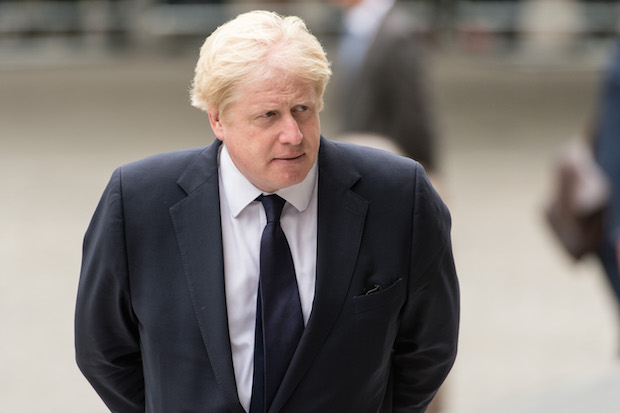How do the Tories win over low-income workers for good? That’s the question occupying the mind of anyone seriously thinking about the 2020 election, rather than assuming that Jeremy Corbyn will win it for them. Today Boris Johnson turned his hand to answering that question in an eloquent and detailed speech which set out his stall on social mobility. Of course, every speech at the moment is viewed as part of the leadership contest, and given Boris hasn’t had a particularly stellar first term in the Commons, this speech did appear to be partly a reminder that he hasn’t gone away at all. In fact, it was a fine speech which reminded us that Boris is far more than just a funny man.
There were passages where the Mayor demonstrated his ability for communicating Conservatism in a an appealing and accessible way, arguing boldly in favour of people getting rich in a way that many Tories look oddly uncomfortable doing. He said that ‘I will even defend the pointless ostentation of these people’ and added that ‘the wheels of the economy are turned all the faster by a greedy and a competitive desire to consume’. But he added that ‘I believe the One Nation Tories need to go further and we need to go beyond trickle down… and ensure that there is real cohesion, a real sense of shared interest’. The Tories, he said, must be the ‘door-bursters’, ‘to bash down those barriers and we should be giving the poorest a chance to compete on an equal footing with the affluent bourgeoisie’.
The Mayor said people would tolerate a wealth gap so long as the wealthy paid their taxes, people who work hard on low incomes are paid decently by firms that can afford to, and that there must be a ‘possibility of change’, that someone can move from a disadvantaged background to being rich. He said the three ways the Tories could burst down those doors were through housing, transport and education.
But Boris’ prescription for social mobility is not quite traditional Conservative, in that the Mayor did not mention the role of the family at all. This is curious given he was speaking at the Centre for Social Justice, a think tank that has done more than any other to highlight the importance of strong, stable families in moving people out of poverty. Perhaps it is because he fears that his personal life, largely accepted by people as one of those things, will become a bigger issue if he appears to pontificate about the importance of the family. Or perhaps he thinks family instability is either inevitable or simply a private matter that is not a concern for public policy.
Many Conservatives would disagree, though interestingly Boris’s main rival for the leadership, George Osborne, has a similarly social liberal preference for not preaching at people about marriage and stable relationships. David Cameron, on the other hand, is a passionate believer in the benefits of marriage and the family. If the leadership contest does boil down to Boris vs George, those who agree with the current Prime Minister and the CSJ will need to work out how to persuade the Conservative party to value the family if it is to avoid becoming as allergic to the term as Labour has in the past few years.







Comments